|
Books Should Be Free Loyal Books Free Public Domain Audiobooks & eBook Downloads |
|
|
Books Should Be Free Loyal Books Free Public Domain Audiobooks & eBook Downloads |
|
Top Authors |
|---|
|
Book type:
Sort by:
|
By: Sir John Suckling | |
|---|---|
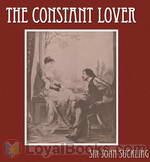 The Constant Lover
The Constant Lover
Sir John Suckling (1609-42) was one of the Cavalier poets at the court of King Charles I of England. He took up arms in the conflicts of that era but was said to be more fit for the boudoir than the battlefield. He was a prolific lover, a sparkling wit and an excessive gamester and is credited with inventing the card game, Cribbage. Cavalier poetry was witty, decorous and sometimes naughty. The Constant Lover displays these elements as well as Suckling’s conversational ease and charm. | |
By: Mary E. Hanshew (1852-1927) | |
|---|---|
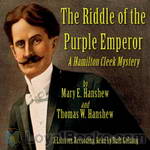 The Riddle of the Purple Emperor
The Riddle of the Purple Emperor
Orphan Lady Margaret Cheyne returns home on her eighteenth birthday to live with her embittered maiden aunt and to take up her inheritance of the family jewels. The Cheyne jewels include a pendant featuring the Purple Emperor, a priceless jewel looted from a temple during the Indian Mutiny. During her time at school in Paris, Lady Margaret has met and fallen in love with Sir Edgar Brenton, the son of an old flame of her aunt and a neighbour in the village of Hampton, where Cleek’s adored Ailsa Lorne has also taken up residence... | |
By: Thorstein Veblen (1857-1929) | |
|---|---|
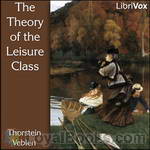 The Theory of the Leisure Class
The Theory of the Leisure Class
Originally published by the Norwegian-American economist Thorstein Veblen while he was a professor at the University of Chicago in 1898, the Theory of the Leisure Class is considered one of the great works of economics as well as the first detailed critique of consumerism. In the book, Veblen argues that economic life is driven not by notions of utility, but by social vestiges from pre-historic times. [Summary modified from Wikipedia.] | |
By: T. F. Thiselton Dyer (1848-1923) | |
|---|---|
 Strange Pages from Family Papers
Strange Pages from Family Papers
“Among other qualities which have been supposed to belong to a dead man’s hand, are its medicinal virtues, in connection with which may be mentioned the famous ‘dead hand,’ which was, in years past, kept at Bryn Hall, Lancashire… Thus the case is related of a woman who, attacked with the smallpox, had this dead hand in bed with her every night for six weeks, and of a poor lad living near Manchester who was touched with it for the cure of scrofulous sores.” Though not all chapters have such gruesome subjects as The Dead Hand, all are full of a curious mixture of superstition and local history that will delight and amuse the modern listener. | |
By: Ben Jonson (1572-1637) | |
|---|---|
 The Forest
The Forest
The Forest is a short collection of Ben Jonson’s poetry. This collection of fifteen poems first appeared in the 1616 first folio of his collected works. | |
 Volpone, or, The Fox
Volpone, or, The Fox
Volpone is a comedy by Ben Jonson first produced in 1606, drawing on elements of city comedy and beast fable. A merciless satire of greed and lust, it remains Jonson's most-performed play, and it is among the finest Jacobean Era comedies. Volpone is a Venetian gentleman who pretends to be on his deathbed, after a long illness, in order to dupe Voltore, Corbaccio, and Corvino, three men who aspire to inherit his fortune. In their turns, each man arrives to Volpone’s house bearing a luxurious gift, intent upon having his name inscribed to the will of Volpone, as his heir... | |
By: Mohandas Karamchand Gandhi | |
|---|---|
 Third Class in Indian Railways
Third Class in Indian Railways
Mohandas Karamchand Gandhi (1869 – 1948) was the pre-eminent political and spiritual leader of India during the Indian independence movement. He was the pioneer of satyagraha — resistance to tyranny through mass civil disobedience. This philosophy was firmly founded upon ahimsa, or total nonviolence, and led India to independence and inspired movements for civil rights and freedom across the world. Gandhi is commonly known around the world as Mahatma Gandhi and in India also as Bapu. He is officially honoured in India as the Father of the Nation; his birthday, 2 October, is commemorated there as Gandhi Jayanti, a national holiday. | |
By: James J. Walsh (1865-1942) | |
|---|---|
 Old-Time Makers of Medicine
Old-Time Makers of Medicine
Dr. Walsh’s Old-Time Makers of Medicine chronicles the history and development of modern medicine from ancient times up to the discovery of America. Throughout this historical guide, Dr. Walsh shows numerous examples of practices thought to be entirely modern that were clearly anticipated hundreds or thousands of years ago. Ancient healers sought to use the body’s natural healing ability, rather than rely exclusively on external cures. Physicians even in ancient times relied on what is now recognized as the placebo effect... | |
By: Dame Shirley (d.1906) | |
|---|---|
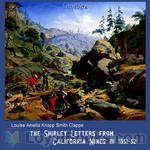 The Shirley Letters from California Mines in 1851-52
The Shirley Letters from California Mines in 1851-52
Louise Amelia Knapp Smith Clappe moved to California from Massachusetts during the Gold Rush of the mid-1800’s. During her travels, Louise was offered the opportunity to write for The Herald about her travel adventures. It was at this point that Louise chose the name “Shirley” as her pen name. Dame Shirley wrote a series of 23 letters to her sister Mary Jane (also known as Molly) in Massachusetts in 1851 and 1852. The “Shirley Letters”, as the collected whole later became known, gave true accounts of life in two gold mining camps on the Feather River in the 1850s... | |
By: Max Beerbohm (1872-1956) | |
|---|---|
 Zuleika Dobson
Zuleika Dobson
‘A wickedly funny 1911 satire on undergraduate life in Edwardian Oxford’ in which the entire student body of Oxford university including the young, handsome aristocrat the Duke of Dorset falls hopelessly in love with Zuleika who is visiting her grandfather, the warden of Judas college, and ultimately commit mass suicide at the end of ‘Eights Week’ | |
By: Max Beerbohm (1872-1956) | |
|---|---|
 Seven Men
Seven Men
In order to liven up the literary history of Great Britain in the 1890s (as if Oscar Wilde, Stevenson, Kipling, Hardy, etc., were not lively enough) Max Beerbohm wrote short biographies of six imaginary writers. Though their works of course no longer exist, he leaves the impression that the literary world is really none the poorer. It is, of course, the six men themselves (Beerbohm himself is the seventh man of the title) who are worth our attention. ( Nicholas Clifford) Note that the Gutenberg edition of Seven Men is incomplete, but the missing sections may be found separately James Pethel http://www.gutenberg.org/ebooks/759 E.V. Laider http://www.gutenberg.org/ebooks/761 | |
 Happy Hypocrite: A Fairy Tale For Tired Men
Happy Hypocrite: A Fairy Tale For Tired Men
Sir Henry Maximilian "Max" Beerbohm was an English essayist, parodist, and caricaturist. The Happy Hypocrite: A Fairy Tale for Tired Men is a short story with moral implications. Beerbohm's tale is a lighter, more humorous version of Oscar Wilde's classic tale of moral degeneration, The Picture of Dorian Gray. The Happy Hypocrite tells the story of a man who deceives a woman with a mask in order to marry her. | |
By: Mary Johnston (1870-1936) | |
|---|---|
 To Have And To Hold
To Have And To Hold
When I first started reading this book, I thought it to be a historical romance novel. As I read further, I pondered whether it might be a sea-faring story. Reading still further, I determined it to be an adventure story. Alas, it is all three. To Have And To Hold, written by Mary Johnston was the bestselling novel of 1900. The story takes place in colonial Jamestown during the 1600’s. Captain Ralph Percy, an English soldier turned Virginian explorer buys a wife - little knowing that she is the escaping ward of King James I... | |
By: Francis Brett Young (1884-1954) | |
|---|---|
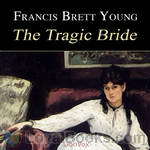 The Tragic Bride
The Tragic Bride
The story centers on Gabrielle Hewish, only and lonely child of Sir Jocelyn Hewish, a loveable lush and owner of the peaceful Roscarna estate nestled in the Irish countryside. In due course, young Gabrielle falls in love with a Navy man whose untimely demise sends her into a depression, and the consequences of which alter her future, culminating in a fascinating and quite unpredictable relationship with Mrs. Payne and her troubled son Arthur. A story of understanding in it’s finest sense and aptly titled, The Tragic Bride is both interesting as a story and telling as a character study. | |
By: Pope Clement I | |
|---|---|
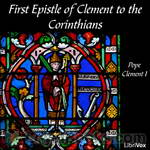 First Epistle of Clement to the Corinthians
First Epistle of Clement to the Corinthians
“First Clement is one of the oldest Christian documents outside the New Testament canon (ca. 96 A.D.). The epistle was written by Clement, one of the elders of the church of Rome, to the church in Corinth, where it was read for centuries. The purpose of the writing was to exhort the Corinthians to reinstate its elders after they had been overthrown by other brethren. Historians generally hold First Clement to be an authentic document dating from the first century. From the fifth century to the... | |
By: Enos A. Mills (1870-1922) | |
|---|---|
 Wild Life on the Rockies
Wild Life on the Rockies
“This book contains the record of a few of the many happy days and novel experiences which I have had in the wilds. For more than twenty years it has been my good fortune to live most of the time with nature, on the mountains of the West. I have made scores of long exploring rambles over the mountains in every season of the year, a nature-lover charmed with the birds and the trees. On my later excursions I have gone alone and without firearms. During three succeeding winters, in which I was a Government Experiment Officer and called the “State Snow Observer,” I scaled many of the higher peaks of the Rockies and made many studies on the upper slopes of these mountains.” | |
By: William Bradford (1590-1657) | |
|---|---|
 Bradford's History of the Plymouth Settlement
Bradford's History of the Plymouth Settlement
The journal of William Bradford, who served five terms as governor of the Plymouth colony, is an indispensable document of the events of early American history. His eyewitness account includes the stories of the Pilgrims’ sojourn in the Netherlands, the voyage of the Mayflower, the hardships of the New World, relations with the Indians, and the colony’s growth from an endangered enterprise to a thriving city. This edition of Bradford’s Of Plimoth Plantation presents the text in language made more accessible to the modern reader | |
By: Henry Thayer Niles (1825-1901) | |
|---|---|
 The Dawn and the Day
The Dawn and the Day
The Dawn and the Day, or, The Buddha and the Christ, Part 1 is a text similar to the epic poetry of Homer or, more accurately, classic Hindu texts, such as the Baghavad-Gita. | |
By: H.B. Fyfe (1918-1997) | |
|---|---|
 D-99
D-99
Five citizens of Terra were being held on other worlds -- and the ultra-secret Department 99 existed only to set them, and others like them, free. | |
By: Twentieth Century New Testament | |
|---|---|
 Twentieth Century New Testament
Twentieth Century New Testament
Published in 1904, The Twentieth Century New Testament is considered the first translation of the Bible into modern English. It was produced in Britain over a period of 15 years by approximately 20 people -- ministers, housewives, school teachers and businessmen -- who were united by their desire for a New Testament in the language of the people. They were advised by such scholars as J. Rendel Harris and Richard Weymouth so their rendering is quite accurate. In addition they made some effort at rearranging the New Testament books in the order scholars believe they were written -- Mark comes before Matthew, for instance... | |
By: W. W. Jacobs (1863-1943) | |
|---|---|
 Night Watches
Night Watches
A most popular Jacobs character, a night watchman along the English coast, remembers troubles his friends got into during shore leave. At least part of the fault lay with those friends, who were both careless and naïve. But not all the stories are linked to just shore leave even though they relate to the sea in some way. Included are a ghost story, a warehouse worker playing sick, a couple sparring for new income, and even a makeover story. (Bill Boerst based on Wikipedia) | |
By: Ford Madox Ford (1873-1939) | |
|---|---|
 The Good Soldier
The Good Soldier
The Good Soldier (1915) "... is set just before World War I and chronicles the tragedies of the lives of two seemingly perfect couples. The novel is told using a series of flashbacks in non-chronological order, a literary technique pioneered by Ford. It also makes use of the device of the unreliable narrator, as the main character gradually reveals a version of events that is quite different from what the introduction leads you to believe. The novel was loosely based on two incidents of adultery and on Ford's messy personal life.”Music in sections 1-5 "Minuet in G flat major and Valse Bluette" by Beethoven | |
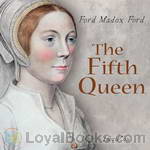 The Fifth Queen
The Fifth Queen
The Fifth Queen trilogy is a series of connected historical novels by English novelist Ford Madox Ford. It consists of three novels, The Fifth Queen; And How She Came to Court (1906), Privy Seal (1907) and The Fifth Queen Crowned (1908), which present a highly fictionalized account of Katharine Howard's marriage to King Henry VIII. | |
By: Alfred Elwes (1819-1888) | |
|---|---|
 The Adventures of a Dog, and a Good Dog Too
The Adventures of a Dog, and a Good Dog Too
This fictional work is written in 1st person by the dog himself. It's a cute story of the adventures in the life of a noble dog who is appropriately named, Job. The canine society in which he lives is an interesting parallel to human society. | |
By: George Hamilton | |
|---|---|
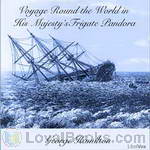 Voyage Round the World in His Majesty's Frigate Pandora
Voyage Round the World in His Majesty's Frigate Pandora
George Hamilton was the surgeon assigned to the frigate Pandora. The British Admiralty ordered the ship to the Pacific to arrest the Bounty mutineers and bring them back to England for trial. The commander, Captain Edward Edwards, also was ordered to chart the passage between Australia and New Guinea. While Edwards managed to arrest the mutineers still on Tahiti, he sank the Pandora on a reef near Australia. Hamilton tells this story and also the story of the crew’s fate after the Pandora sank. | |
By: Elizabeth Gurley Flynn (1890-1964) | |
|---|---|
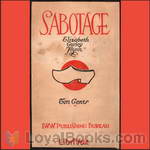 Sabotage
Sabotage
Elizabeth Gurley Flynn (1890-1964) was a leading American socialist and feminist. Her book “Sabotage, the conscious withdrawal of the workers’ industrial efficiency” was written to explain the utility and legality of sabotage. | |
By: Payne Erskine | |
|---|---|
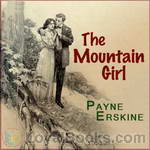 The Mountain Girl
The Mountain Girl
A delightful love-story, genuinely American in feeling and treatment. The story is stirring, the heroine is ideal. | |
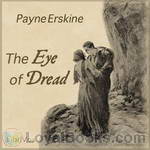 The Eye of Dread
The Eye of Dread
The Civil War is upon the United States, and the town of Leauvite has sent away its young men, among them Peter Junior and Richard Kildene. When they leave, Betty Ballard is but a child, but by the time the war has ended, she has become something else entirely. Wounded, Peter Junior finds his time at Betty's father's studio, learning to become an artist, until one day he proposes to her after deciding to go to France. Of course, she agrees to wait for him. Meanwhile, Richard, who has decided to work on the railways, expects that when he gets back, that Betty will be waiting for him. With these complications, problems begin to arise... | |
By: George Pearson | |
|---|---|
 The Escape of a Princess Pat
The Escape of a Princess Pat
Being the full account of the capture and fifteen months’ imprisonment of Corporal Edwards, of the Princess Patricia’s Canadian Light Infantry, and his final escape from Germany into Holland. | |
By: Titus Livius (c55BC - c17AD) | |
|---|---|
 From the Foundation of the City
From the Foundation of the City
Ab urbe condita, is a monumental history of ancient Rome written in the Latin language by Titus Livius(Livy), an ancient Roman historian. The work covers the time from the stories of Aeneas, the earliest legendary period from before the city's founding in c. 753 BC, to Livy's own times in the reign of the emperor, Augustus. The last year covered by Livy is 745 AUC, or 9 BC, the death of Drusus. About 25% of the work survives.Livy's History of Rome was in demand from the publication of the first packet... | |
By: George Alfred Henty (1832-1902) | |
|---|---|
 By Pike and Dyke
By Pike and Dyke
It is the 1570's, and the people of the Netherlands live in terror under the cruel dominion of Spain. Though many long to be free of Spanish tyranny, efforts at rebellion are failing, and allies are nowhere to be found. Edward “Ned” Martin, son of an English captain and a Dutch lady, is thrust into the conflict when he resolves to help his mother’s people and avenge his murdered relatives. Entering the service of the revolutionary leader William the Silent, Prince of Orange, Ned is called upon to carry out dangerous secret missions deep within occupied territory... | |
By: Frederick Boyle (1841-?) | |
|---|---|
 About Orchids, a Chat
About Orchids, a Chat
This is not a manual of instruction for orchid growers; though there are many hints on cultivation, and a few paragraphs on how to hybridize. The author is just an enthusiastic amateur orchid lover. He takes the reader on a wander through the dangers and consequences of hunting orchids in the tropical jungles of the nineteenth century, and chats about the extreme peculiarities of orchid growth, behaviour and structure, colouring the essays with his own experiences and with his delight in cultivating these beautiful plants. Beware! A new hobby beckons! | |